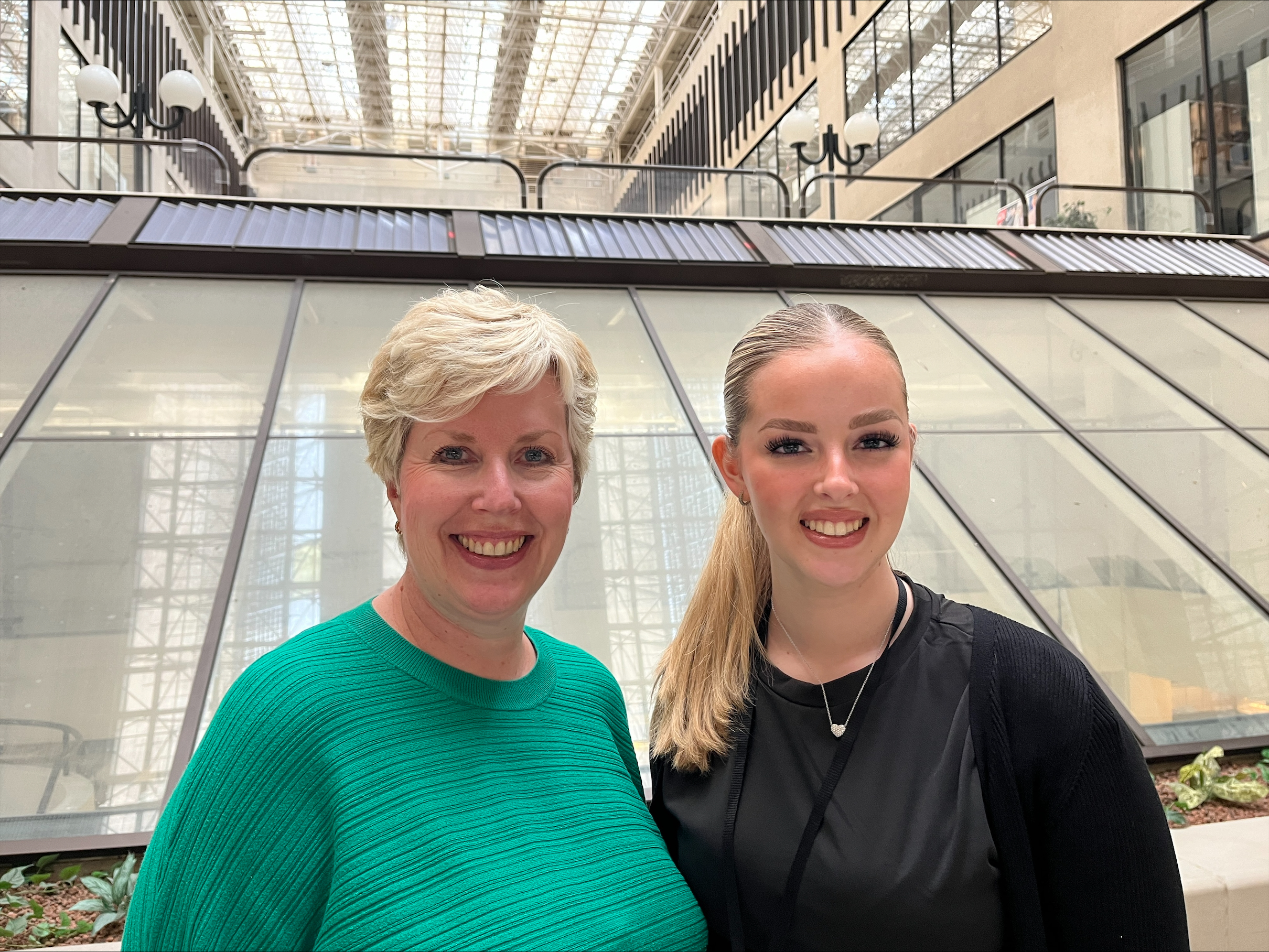In January 2025, we were joined by three new apprentices in our People and Organisation Development function! Our new colleagues are completing six month rotations throughout the function, learning skills and core behaviours whilst they gain a qualification.
We’ve spoken with of our apprentices, who have each chosen a topic or theme that relates to their own personal experience – Louise has chosen to speak about starting something totally new to her – The world of HR:
Why Did You Choose a Career in People and Organisation Development?
“As I reached the end of my A-Levels, I was faced with a big decision—what’s next? For a long time, I had envisioned a career in Law because of my passion for understanding people and working on their behalf. With only part-time experience in a supermarket and a hair salon, I felt I had so much to learn and little time to make the right choice. However, I knew one thing for certain: I thrived in roles that allowed me to work with and for people.
At first, pursuing Law seemed like the obvious path. I had even accepted an offer for a 7-year Solicitor Apprenticeship at a law firm. But as the start date approached, I had a gut feeling it wasn’t right for me. At the last moment, I withdrew my acceptance and started researching other people-focused careers. That’s when I discovered HR—and I quickly realised it was so much more than I had initially thought. The breadth of opportunities in People and Organisation Development excited me, and I saw it as the perfect career to grow both personally and professionally. The dynamic nature of the field meant I would constantly be learning and adapting, which felt like an exciting challenge rather than a daunting one.”

How Did You Find It Starting an Apprenticeship in an Area Where You Had No Previous Experience?
“Starting my apprenticeship in a large organisation with no prior HR experience was nerve-wracking. Compared to my colleagues, I felt massively underqualified, and I struggled with imposter syndrome—especially in the first few weeks. Speaking with experienced professionals, I often thought their roles sounded so complex and far out of reach for someone like me.
However, I soon realised that imposter syndrome is completely normal. My colleagues reassured me that it’s something everyone experiences at various stages of their careers. Instead of seeing it as a setback, I learned to embrace it as a sign that I was pushing myself and growing.
At first, I would preface my contributions with phrases like, “This might be a silly question, but…”—only to realise that my fresh perspective was actually valuable. My colleagues found my insights useful, as I approached tasks with a different lens. This experience taught me that even without sector-specific experience, the skills and perspectives you bring are important. My part-time jobs and A-Level studies had already helped me develop transferable skills—communication, teamwork, problem-solving—all of which became invaluable in my apprenticeship.”
What Support Was Available to You in Starting Your Career?
From day one, I was surrounded by a strong support network that made the transition into my apprenticeship so much smoother. My organisation provided multiple forms of support, including:
- Regular check-ins with my Line Manager, which helped me manage my workload, balance apprenticeship assignments, and discuss my long-term career development.
- A dedicated buddy, who I meet with weekly in an informal setting to ask questions, seek advice, and get a deeper understanding of the organisation.
- A new starter checklist, which guided me through the onboarding process and helped me settle in.
- A coach from my Apprenticeship Provider, offering structured guidance and support on my coursework and professional development.
- A community of apprentices, both within and outside my programme, who provided advice on time management, organisation, and useful resources.
Knowing that everyone around me wanted me to succeed gave me the confidence to push myself and take on new challenges. The combination of formal and informal support made a huge difference in my ability to transition smoothly into my role.
From day one, I was surrounded by a strong support network that made the transition into my apprenticeship so much smoother.
Louise, People & Organisation Development Apprentice
What Advice Would You Give to Applicants Considering an Apprenticeship to Start a New Career?
If you’re considering an apprenticeship, my biggest advice is to research the right programme to ensure it aligns with your career aspirations. Even if you don’t have direct experience in the industry, focus on highlighting transferable skills—communication, problem-solving, teamwork—all of which are valuable in any role.
If you do have previous work experience, even if it’s in a completely different industry, use it to your advantage. Think about the skills you’ve developed and how they apply to your chosen apprenticeship. Employers look for adaptability and a willingness to learn, so emphasise those qualities.
Finally, demonstrate strong organisational and time management skills in your application. Balancing work and study is a key part of any apprenticeship, and showing that you can manage your workload effectively will set you apart.
Starting a new career can feel daunting, especially without sector experience, but apprenticeships are designed to help you learn on the job. With the right mindset and support, you can develop the skills and confidence to succeed.
Inspired by Louise’s apprenticeship experience? Find out about our entry pathways on our ‘Entry to Work’ page.



